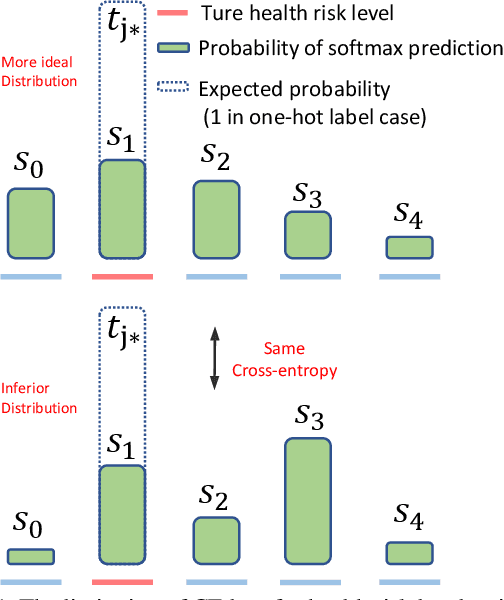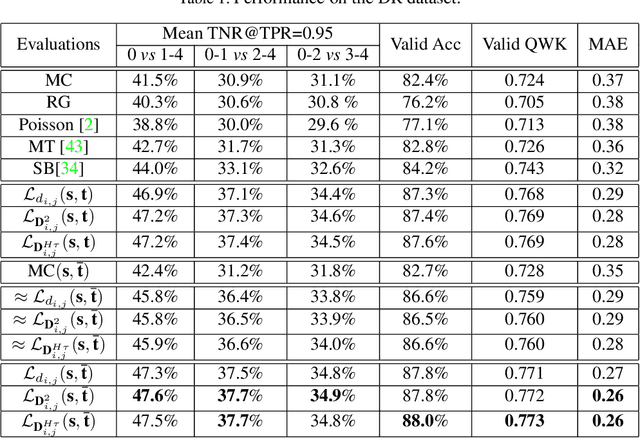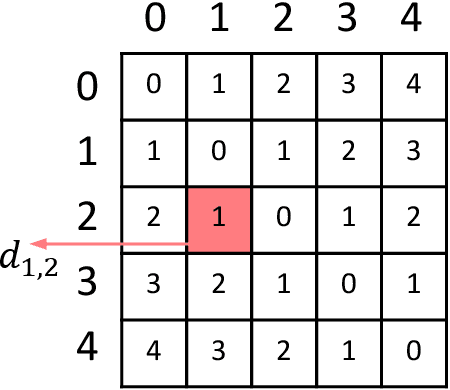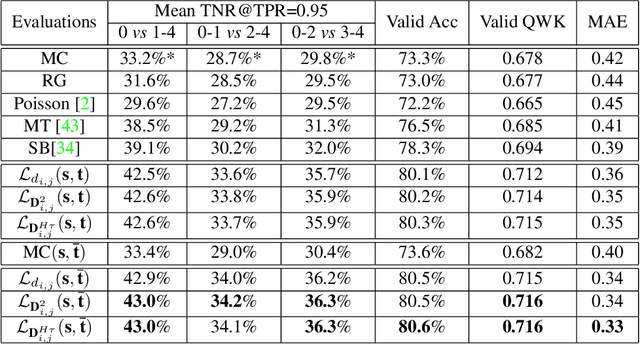Unimodal-uniform Constrained Wasserstein Training for Medical Diagnosis
Paper and Code
Nov 03, 2019



The labels in medical diagnosis task are usually discrete and successively distributed. For example, the Diabetic Retinopathy Diagnosis (DR) involves five health risk levels: no DR (0), mild DR (1), moderate DR (2), severe DR (3) and proliferative DR (4). This labeling system is common for medical disease. Previous methods usually construct a multi-binary-classification task or propose some re-parameter schemes in the output unit. In this paper, we target on this task from the perspective of loss function. More specifically, the Wasserstein distance is utilized as an alternative, explicitly incorporating the inter-class correlations by pre-defining its ground metric. Then, the ground metric which serves as a linear, convex or concave increasing function w.r.t. the Euclidean distance in a line is explored from an optimization perspective. Meanwhile, this paper also proposes of constructing the smoothed target labels that model the inlier and outlier noises by using a unimodal-uniform mixture distribution. Different from the one-hot setting, the smoothed label endues the computation of Wasserstein distance with more challenging features. With either one-hot or smoothed target label, this paper systematically concludes the practical closed-form solution. We evaluate our method on several medical diagnosis tasks (e.g., Diabetic Retinopathy and Ultrasound Breast dataset) and achieve state-of-the-art performance.
 Add to Chrome
Add to Chrome Add to Firefox
Add to Firefox Add to Edge
Add to Edge